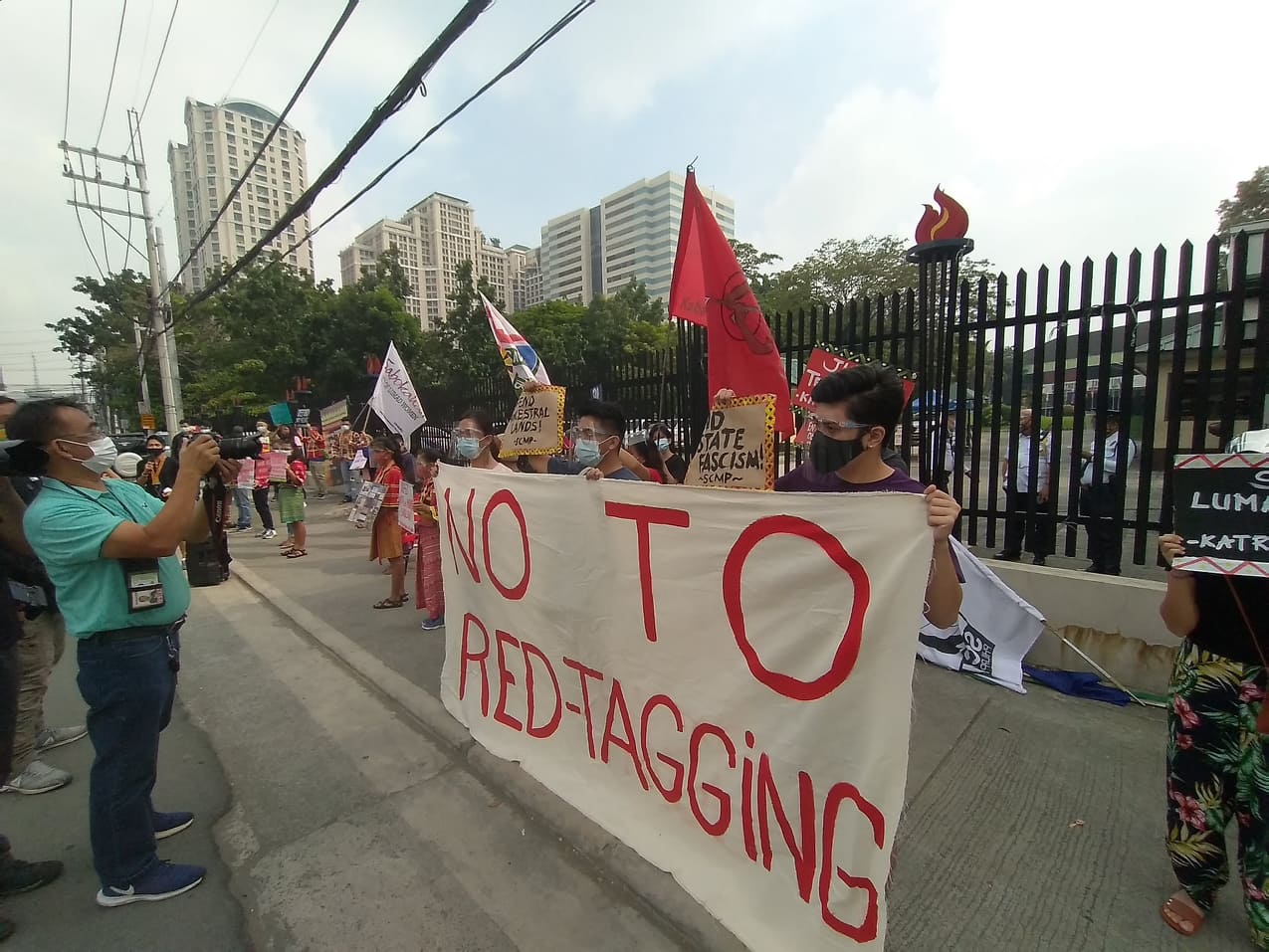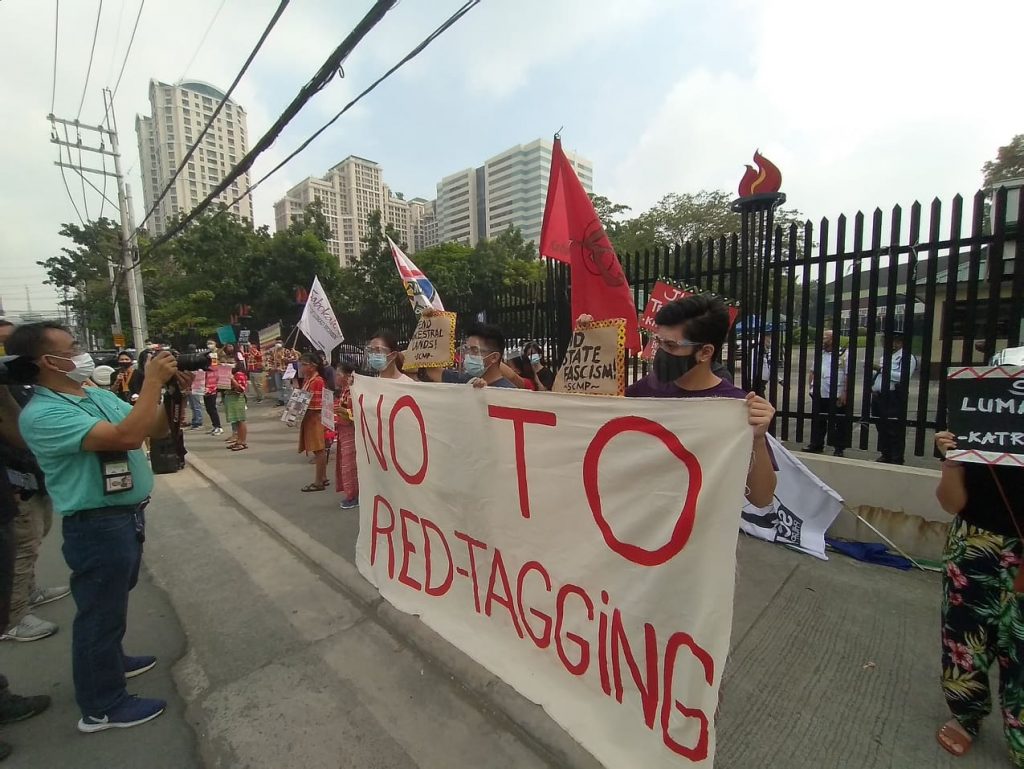Red tagging has emerged as a national debate in the Philippines in the lead up to the inauguration of President-elect Ferdinand Marcos Junior. Menardo Guevarra, Justice Secretary of the outgoing Rodrigo Duterte government, has labelled the practice of red-tagging as dangerous.
The practice involves state security bodies flagging individuals or groups associated with the banned Communist Party of the Philippines (CPP) and the New People’s Army, the armed section of the CPP. However, it also extends to those with links to other progressive organisations.
In the past, red-tagging has led to harassment and violent attacks, without substantial evidence, by vigilantes and government officials. Activists, trade unionists and land protectors have been killed because of this practice.
The President of the BPO Industry Employees’ Network, Mylene Cabalona, has said that she has received threats of violence as a result of her work with call centre workers and has been accused of links to insurgents.
Many women activists have been threatened with rape.
The incoming National Security Advisor, Clarita Carlos, has called on the National Task Force on Ending Local Communist Armed Conflict (NTF-ELCAC), an anti-insurgency agency descended from Duterte’s administration, to end the practice of red-tagging. NTF-ELCAC is composed of former military officials and uses social media and official announcements to carry out red-tagging.
Both Guevarra and Carlos have expressed that a militaristic approach to insurgency is not effective, perhaps indicating a policy shift amongst government officials as Marcos Jr becomes President on June 30.
However red-tagging is still very much an issue that activists and indigenous people continue to face. The police have conducted regular check-ins with both the Center for Environmental Concerns-Philippines and the Kalikasan People’s Network for Environment (Kalikasan PNE), and left activists fearing a crackdown sooner rather than later.
Since election campaigns began in February, red-tagging incidents are up five times, according to a report by Kalikasan PNE released in March. Their figures are alarming, revealing that people facing attacks in February alone have increased by 483%.
The political climate in the Philippines is one of fear and has resulted in many people toeing the line, unable of defying the state.
Georgina Andrews, is a member of the YCL’s Birmingham branch




